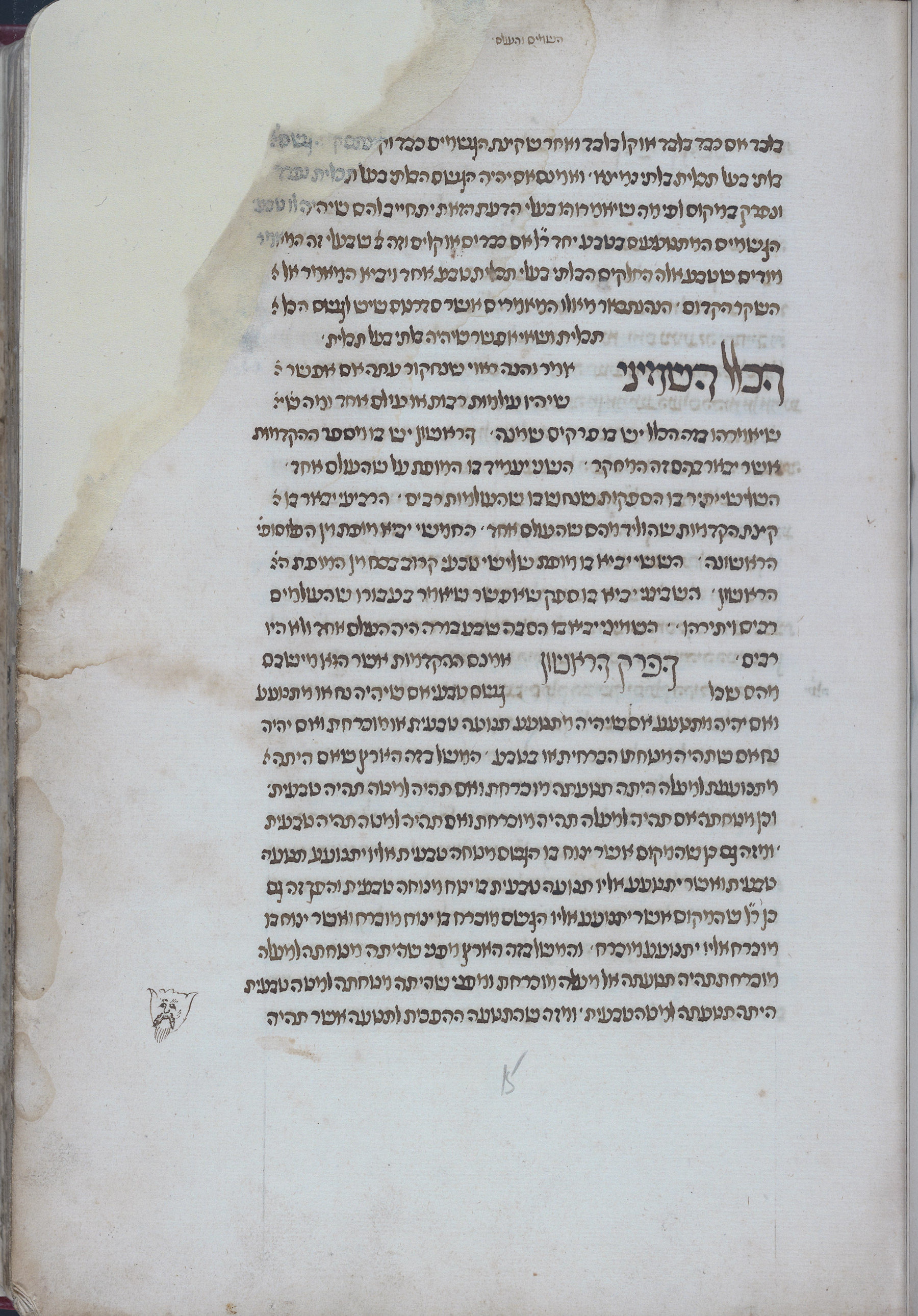This substantial codex, copied in Germany in 1446 and consisting of 269 folios written in several Ashkenazi scribal hands, was recently acquired by the University of Pennsylvania through a gift made by the noted collector Lawrence J. Schoenberg and Barbra Brizdle Schoenberg. LJS 453 contains Hebrew translations of Arabic commentaries on the scientific works of Aristotle. Although it represents a fifteenth-century copy of the commentaries on works on various aspects of natural history, as well as on cosmology and meteorology, the texts themselves are the product of developments in intellectual history and tastes that flourished in earnest in the thirteenth century and continued into the fourteenth. As early as the second half of the twelfth century, Jewish readers living in regions of what are modern-day Spain and France began to translate Arabic-language scientific, philosophical and religious texts into Hebrew, with the consequence that these texts became available to a wider readership. The beginnings of this translation movement, which was consciously modeled on the ninth-century movement in the eastern Mediterranean to translate Greek-language texts into Syriac and Arabic, also led to the creation of a brand new technical vocabulary in Hebrew, since translators were often required to coin new terms for concepts in these fields that had not previously ever been discussed or written about in Hebrew.
The texts in this volume include: Solomon ibn Ayyub's translation of Averroes' commentary on De Caelo; translations by the noted Hebrew poet Kalonymos ben Kalonymos of the commentary on De generatione et corruptione and the Meteorologia; and Jacob ben Makhir's translation of De Animalibus. The volume also contains Hebrew translations of Abraham ibn Ezra's commentary on Psalms and fragments of Moses Maimonides' Epistle to the Yemen. Taken together, these texts offer a coherent and complete, if not comprehensive, overview of the major intellectual and religious trends and debates that were current in thirteenth-century Spain and France. Beginning in the second half of the twelfth century, the father-and-son pair of translators, Judah and Samuel ibn Tibbon, began to adapt Arabic texts into Hebrew, often times at the request of particular communities with low levels of Arabic literacy but interest in reading texts of classical antiquity and the medieval Arabic commentaries upon them; this trend continued in northern Spain and southern France and allowed for the wide dissemination in the Jewish world of texts that were of scientific and dialectical-rationalist character.
